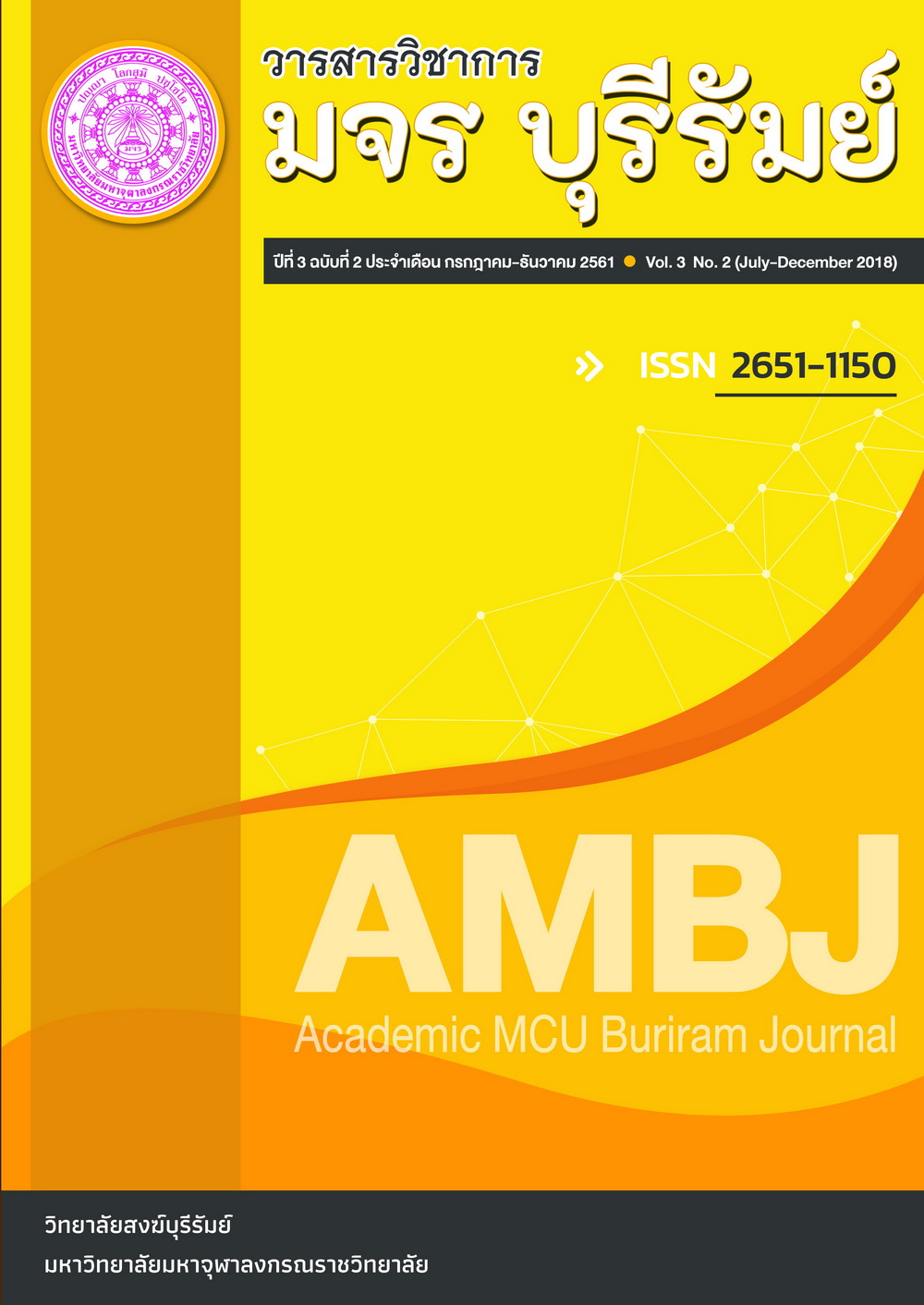Role of Buddhakaset Secondary School in Promotion and Development of Quality of Life of Student in Buddhist Philosophy of Sufficiency Economy
Keywords:
Role, Buddhakaset Secondary School, Promoting, Philosophy of Sufficiency Economy, Promoting, Philosophy of Sufficiency EconomyAbstract
This study attempted to investigate the role of Matthayom Buddhakaset School and life quality promotion and development of students based on Buddhist Philosophy of Sufficiency Economy in the following aspects: (1) modesty, (2) reasonableness, (3) self-immunity, (4) knowledge, and (5) virtue.
The research methodology was divided into two sections. The first section studied the roles of Matthayom Buddhakaset school and life quality promotion and development based on Buddhist Philosophy of Sufficiency Economy. The population of this study consisted of 287 students of Matthayom Buddhakaset School in the academic year 2559. Samples who completed the questionnaire were 165 students. The sample size was examined by using the Table of Krejcie & Morgan. The statistics used for data analysis consisted of Frequency, Percentage, Mean ( ), Standard Deviation (S.D) and T-Test. The second section concerned the solution of problems, obstacles, and suggestions concerning the roles of school in promoting and developing life quality of students based on Buddhist Philosophy of Sufficiency Economy. Data collected from the interview was analyzed by using Content Analysis techniques.
Results showed that:
The participants expressed attitudes towards the roles of Matthayom Buddhakaset School in promoting and developing life quality based on Buddhist Philosophy of Sufficiency Economy as follows: (1) In terms of moderation, they are moderate according to living, consumption, relying on one’s self, not overwhelming others, and having morality. (2) Concerning reasonableness, they have reasonableness in employing accumulated knowledge, local wisdom, culture for solving their problems and being relying on themselves. (3) In terms of self-immunity, they well prepare to deal with the unpredictable changes from various effects such as projects or community’s operation to respond to problems with awareness of the possibility of events. (4) In terms of knowledge, they are cooperated to cope with their livings e.g., economy, soil, water, forest, fish, food, saving, producing, investing, health, environment as well as information and technology. (5) In terms of virtue, they help each other and are honest, faithful, patient, diligent as well as use their wisdom for living.
Downloads
Published
How to Cite
Issue
Section
License
ทัศนะและความคิดเห็นที่ปรากฏในบทความวารสารฉบับนี้ถือเป็นความรับผิดชอบของผู้เขียนบทความนั้น ไม่ถือเป็นทัศนะและความรับผิดชอบของบรรณาธิการ





